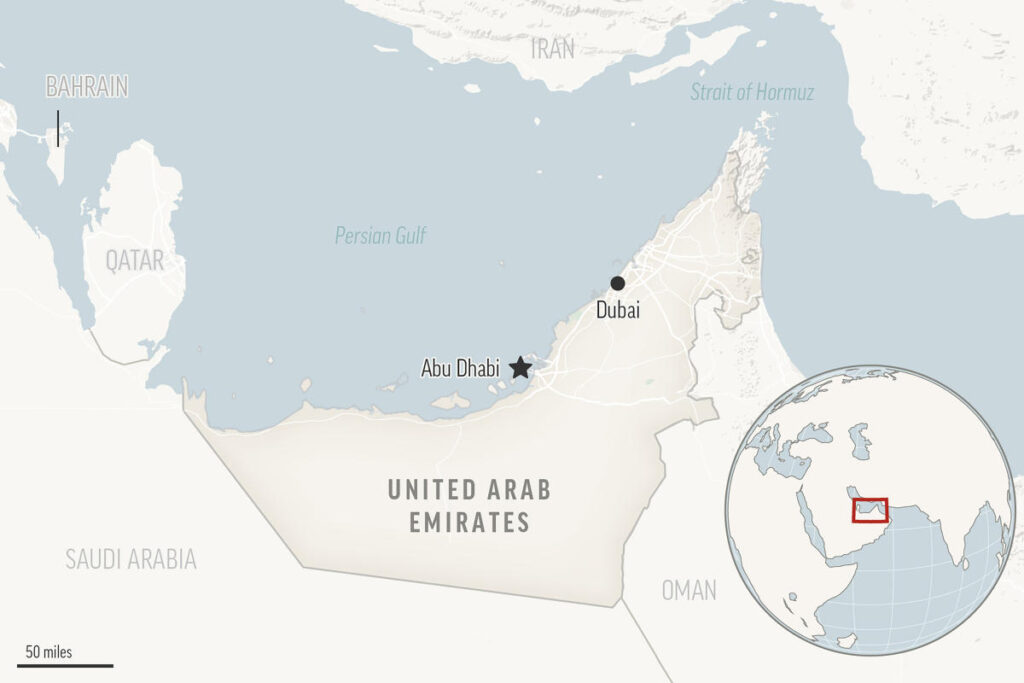The United Arab Emirates (UAE) launched its annual oil-and-gas summit in Abu Dhabi amidst a challenging global economic environment and fluctuating energy prices. Despite recent calls from approximately 200 nations at the COP28 climate talks held in the UAE to move away from fossil fuels, the country is gearing up to increase its oil production to 5 million barrels per day in the coming years. Abu Dhabi, as a significant player in the global oil arena, aims to balance its traditional energy output with investments in cleaner energy alternatives. Sultan al-Jaber, the chief executive of the state-owned Abu Dhabi National Oil Company and leading figure in the COP28 discussions, emphasized the UAE’s commitment to partnership and dialogue, signaling a desire to engage constructively with international players while navigating the uncertain politics surrounding the upcoming U.S. presidential election.
As crude oil prices remain low—trading around $74 a barrel—due to a combination of market dynamics, geopolitical tensions, and economic factors, the UAE’s determination to expand its oil sector stands in stark contrast to the global push for sustainability. The fluctuations in oil prices can be attributed to a myriad of concerns, including slowing economic growth in major markets like China, increased supply, and reduced fears of a broader conflict in the Middle East. These changes are significantly impacting the strategic conversations and decisions being taken at the summit, with energy officials reflecting on how shifts in market conditions affect their operational strategies and future alignments. The gathering serves as a platform for players in the oil sector to strategize amid external pressures and seek out new opportunities in both traditional and alternative energy sectors.
In the backdrop of these discussions, the UAE’s officials were notably reticent when questioned about the potential outcomes of the U.S. presidential election. The event highlighted a delicate political tapestry where the relationships between countries, particularly in terms of energy partnerships, are influenced not only by market conditions but also by political dynamics. Energy and infrastructure minister Suhail al-Mazrouei’s refusal to express a preference for either U.S. presidential candidate, instead wishing them both well, signals the UAE’s commitment to maintaining diplomatic ties irrespective of the outcomes in Washington. This stance likely reflects the UAE’s broader geopolitical strategy of fostering relationships across a spectrum of regimes and crafting a neutral diplomatic identity.
Throughout the summit, the UAE’s ongoing ties with Russia emerged as a significant topic of discussion, particularly in light of the sanctions imposed on Moscow due to its war in Ukraine. As one of the key sponsoring partners of the summit, Lukoil—Russia’s largest non-state oil company—illustrates the UAE’s strategic partnerships despite global political dissent. The overarching theme of partnership was reinforced with references to Russian translation services available at the event, emphasizing the commitment to inclusive, global dialogue regardless of existing geopolitical tensions. This suggests a level of pragmatism in the UAE’s approach, focusing on economic interests rather than allowing political strife to disrupt beneficial alliances.
This simultaneous focus on expanding oil output while pursuing cleaner energy initiatives paints a complex picture of the UAE’s energy policy. On the one hand, the UAE appears to be responding to immediate market conditions by ramping up oil production, thereby positioning itself as a resilient player in a fluctuating energy landscape. On the other, there is a clear acknowledgment of the global imperative for cleaner energy and sustainability, culminating in calls from global leaders for a transition away from fossil fuels. The challenge for the UAE will be to balance its traditional reliance on oil while progressively integrating renewable energy sources into its national energy strategy, striving toward a future that aligns with global environmental goals.
As the conference unfolds, stakeholders from various regions and sectors are keenly observing these dynamics, recognizing that the choices made by the UAE will have ripple effects across the global energy landscape. The decisions taken in Abu Dhabi will not only influence regional economies but also contribute to the broader discourse on sustainability and energy transition worldwide. Ultimately, the significant pledges made at the summit reflect the complex interplay of geopolitics, market forces, and sustainability ambitions that are likely to shape the future of energy in the UAE and beyond. The outcomes of this summit could herald a new chapter in how oil-producing nations react to both market demands and the critical pressures posed by climate change and international relations.

